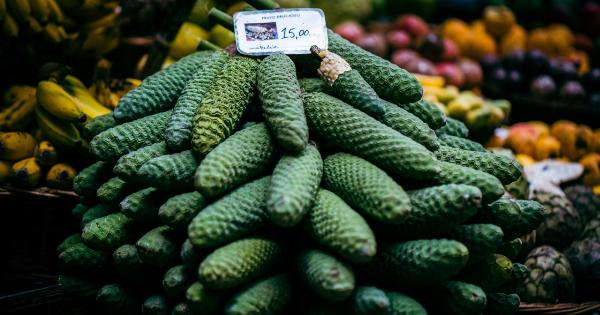When it comes to maintaining a healthy heart, a nutritious diet plays a crucial role. While we often associate fruits with general health benefits, certain exotic fruits go the extra mile in promoting cardiovascular wellness.
Packed with antioxidants, vitamins, and minerals, these fruits help lower cholesterol levels and reduce blood pressure, thus protecting your heart from diseases.
1. Dragon Fruit
Native to Central America, dragon fruit is a visually striking fruit with a vibrant pink or yellow exterior and a white or pink flesh dotted with tiny black seeds.
This exotic fruit is rich in fiber, vitamin C, and antioxidants, which help prevent the oxidation of cholesterol in the body and reduce LDL (bad) cholesterol levels.
2. Kiwano Melon
Also known as horned melon or African horned cucumber, the kiwano melon earns its name due to its unique spiky appearance. This fruit is a rich source of potassium, which plays a crucial role in maintaining healthy blood pressure levels.
Additionally, its high vitamin C content aids in reducing inflammation and preventing arterial damage.
3. Mangosteen
Mangosteen, often referred to as the “queen of fruits,” hails from Southeast Asia. It contains a unique group of antioxidants called xanthones, which have been found to reduce cholesterol levels and inflammation in the body.
Mangosteen also supports heart health by enhancing blood flow and preventing the oxidation of LDL cholesterol.
4. Passion Fruit
Passion fruit is renowned for its tangy flavor and aromatic scent. It is an excellent source of dietary fiber, vitamins A and C, and beneficial plant compounds.
The high fiber content aids in reducing cholesterol absorption in the gut, while the antioxidants assist in preventing damage caused by free radicals.
5. Guava
Guava, a tropical fruit with a distinct flavor, is packed with essential nutrients, including potassium, fiber, and vitamin C.
It has been found to significantly reduce total cholesterol levels and triglycerides while increasing levels of HDL (good) cholesterol. Regular consumption of guava is associated with improved heart health and reduced risk of heart disease.
6. Jabuticaba
Hailing from Brazil, jabuticaba is a small, grape-like fruit that grows directly on the trunk of the tree. It is rich in antioxidants, particularly anthocyanins, which have been linked to reduced blood pressure levels.
Anthocyanins help relax blood vessels and enhance circulation, promoting better heart health.
7. Kiwifruit
Kiwifruit, also known as Chinese gooseberry, is a nutrient-dense fruit that offers a range of health benefits. It is an excellent source of vitamin C, vitamin E, potassium, and dietary fiber.
Regular consumption of kiwifruit has been shown to lower blood pressure and reduce the risk of cardiovascular diseases, making it a heart-friendly addition to your diet.
8. Acai Berry
Acai berries have gained popularity for their potential health benefits. With their rich antioxidant content, these berries support heart health by reducing inflammation, improving circulation, and lowering cholesterol levels.
The anthocyanins present in acai berries help prevent the formation of blood clots, further reducing the risk of heart disease.
9. Rambutan
Native to Southeast Asia, the rambutan is a tropical fruit known for its vibrant red skin covered in soft, spiky hairs. It contains several heart-healthy nutrients, such as potassium, iron, and vitamin C.
The potassium in rambutan helps maintain optimal blood pressure levels, while its antioxidants protect against heart disease by reducing oxidative stress.
10. Pomegranate
Pomegranate, a symbol of health and fertility in many cultures, is a highly beneficial fruit for heart health. Its rich antioxidant content helps lower blood pressure, reduce LDL cholesterol levels, and prevent the buildup of plaque in the arteries.
Pomegranate also enhances nitric oxide production, promoting better circulation and a healthier heart.



























